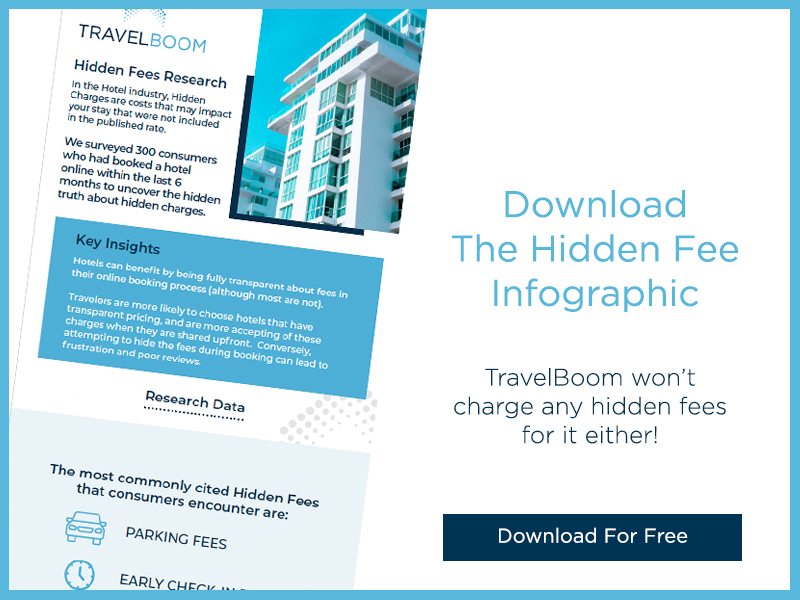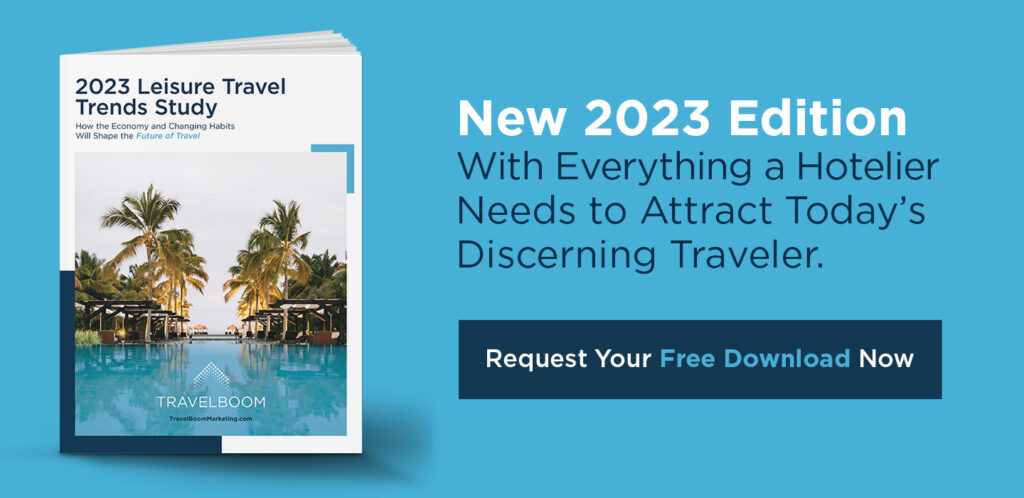The Hidden Danger of Hidden Hotel Fees
by Pete DiMaio
Everyone in the hotel industry knows that hidden fees can cause frustration for potential guests. So much so that Hyatt was sued in a high-profile suit in August of 2023 and the US Congress is pushing through legislation to limit the types of fees hotels can tack on to bookings. Consumers are beginning to revolt against these deceptive practices and abandoning properties that present a low rate and then tack on 50% or more in hidden resort fees, wifi, parking, and other fees.
This has led the TravelBoom research team to dig into the consumer sentiment behind hidden fees and put together the insights you need to help your hotel avoid serious impacts on your RevPAR, conversion rate, and potential legal issues. We surveyed 300 leisure travelers throughout the United States with a brief survey and uncovered these strategies to improve your guest booking experience.
What does a consumer consider to be a hidden hotel fee?
Simply put, a hidden fee is any required cost that is not apparent until the checkout process. This does not include taxes, optional add-on stay enhancements, or optional travel insurance. It does include a litany of charges such as resort fees, parking fees, wifi access, online booking fees, and others.
How do hidden fees impact your hotel’s conversion rate?
First and foremost, why should hoteliers care about hidden fees? Simple, these fees dramatically impact your ability to convert shoppers into guests. We asked survey respondents “How do hidden charges impact your hotel selection?” and the answers should be a sobering reminder to be transparent in pricing. The data uncovered that nearly 50% of travelers are more likely to choose a hotel with transparent pricing. The concerning data point in this question lies in two responses:
- 12% will change their hotel choice when hidden fees are discovered
- 19.5% will actively avoid hotels where they have found hidden fees in the past.
Combining these two responses we find that nearly a full third (31.5%) of your potential guests will abandon your booking funnel when they encounter hidden fees, and a majority of those users will never come back.
Hoteliers should take this data to heart. While hidden fees seem like a great way to increase revenue, they come at a very high hidden cost. Can your property afford to alienate this percentage of your guests?
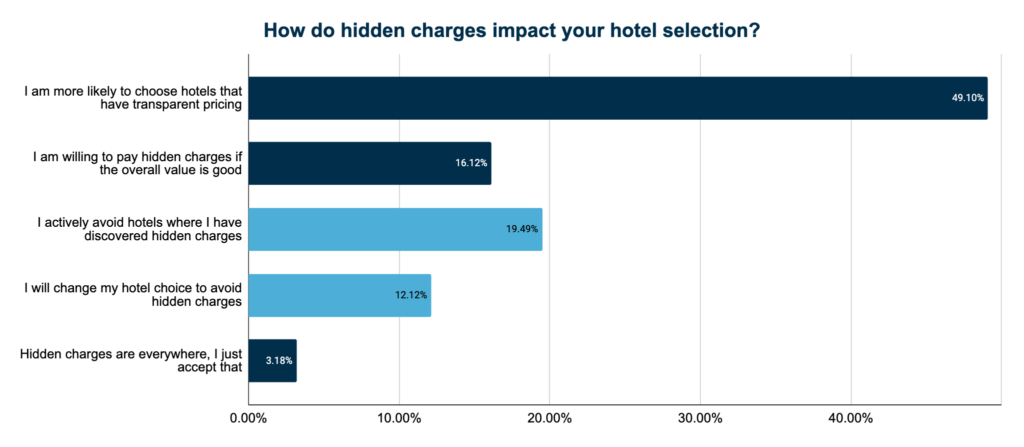
What amount of hidden fees are acceptable?
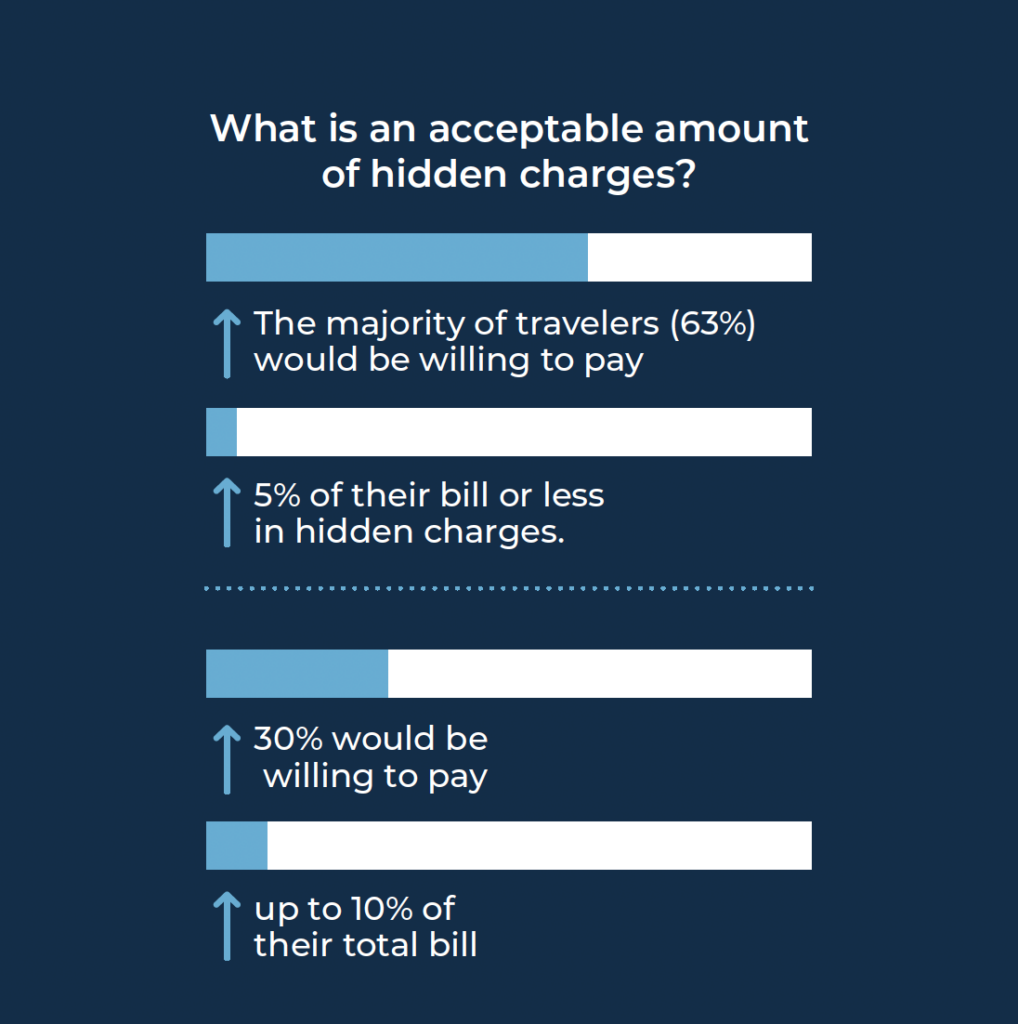
Guests say that zero hidden fees are ideal, however, the data suggests that a guest is willing to accept some fees tacked on to a booking. Most travelers (63%) are okay with paying 5% or less of their total booking in fees. That figure drops to just 30% of travelers when the hidden fees account for up to 10% of their total booking.
We caution hoteliers not to read this as “I can add 5% in hidden fees and be fine.” If you look at the data in a different way, 37% of your potential guests are not okay with even 5% hidden costs. The great unknown is the true cost of adding fees versus just adopting a transparent pricing model. Are your revenue managers looking at your pricing matrix to determine the right mix? Would you drive more revenue by adding 5% to your nightly rate with no fees? We’ll dig into this right now.
Not all hidden fees are equal
Our 300 respondents noted parking fees, early check-in fees, online booking fees, wifi fees, and resort fees are the most common hidden fees encountered when making a hotel booking. The sentiment to each of these fees varies. Early check-in fees and snack/mini-bar fees were the most acceptable, though it could be argued that these are more stay enhancements than true hidden fees. The hidden fees that caused the most negative reactions include:
- 75% Oppose Online Booking Fees: Travelers understand that online booking is expected and any attempt to charge a fee for this service is going to be met with strong resistance.
- 74% Oppose Wi-Fi Fees: The ability to connect online is an expectation of any guest and at this point, hotels should factor this into their cost of doing business and incorporate it into the room cost.
- 73% Oppose Parking Fees: Parking has long been a contentious fee in the hotel space. There is a real cost to the space, which is often also very limited. Each hotel will need to look at how pricing for parking is built into the stay. However, hoteliers should understand that as a rule, this fee is opposed by guests.
Oddly enough resort fees, which have been the focus of lawsuits and legislation, were ranked as being “not fair” or “slightly unfair” by 56% of travelers. Expanding on this sentiment your hotel guests may be accepting of resort fees if you can demonstrate a great value such as an amazing pool complex and/or other amenities.

The type of property also impacts the acceptance of hidden fees. 69% of travelers noted that the type of property impacts how they relate to fees. The higher the quality of the property, the more willing guests are to pay additional fees. This is not to suggest guests at higher-end properties are okay with hidden fees, just that they are more willing to accept them during the booking process. It is important to keep in mind that across the board, travelers are less likely to make secondary bookings at properties that have charged hidden fees in the past.
Hidden fees impact on guest reviews & loyalty
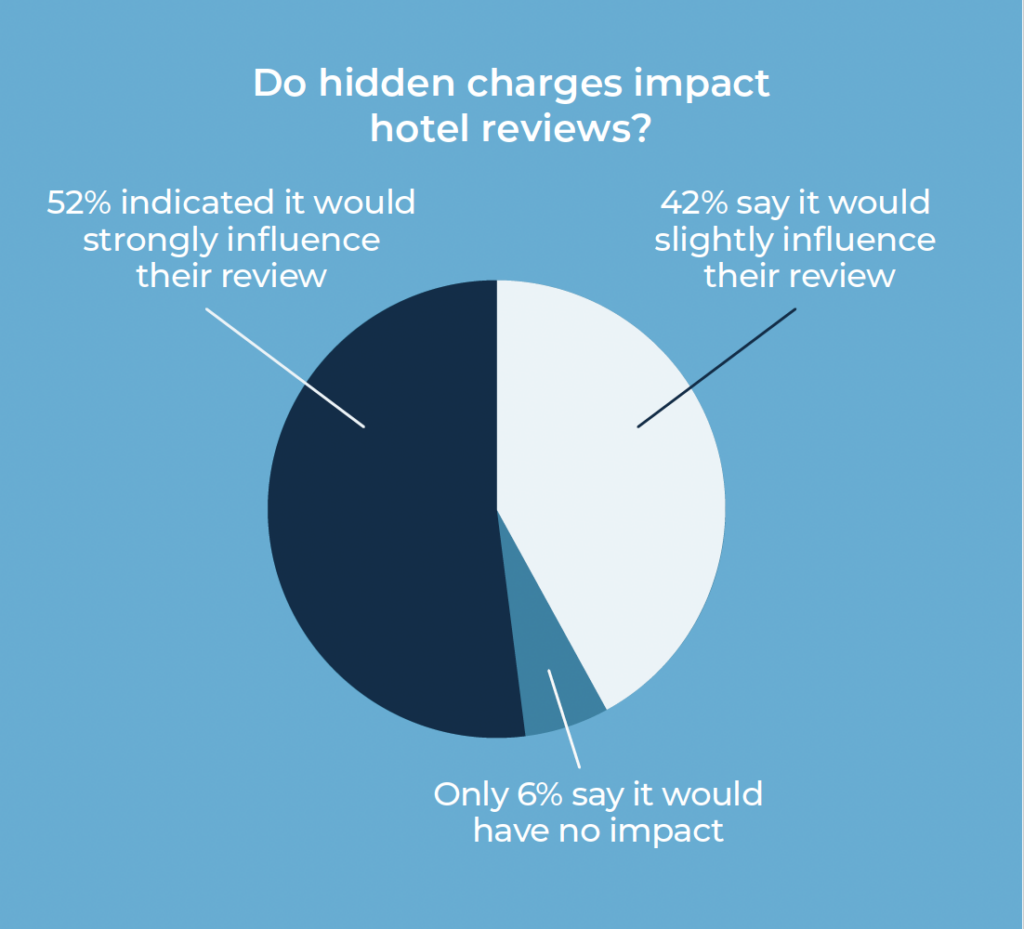
Hidden fees are shown to have impacts beyond just direct revenue and conversion rate. Our research revealed both reviews and loyalty are impacted as well.
Guest reviews suffer due to hidden fees
Guest reviews are a critical component of the booking journey and 81% of leisure travelers will not book without first reading other guest reviews (TravelBoom, 2023 Leisure Travel Trends Study). Therefore a savvy hotelier would know the importance of ensuring the reviews left by departing guests are positive. In this study, we found that hidden fees strongly impact a traveler’s review. Additionally, 42% said it would slightly influence their review.
Guests are less loyal to properties with hidden fees
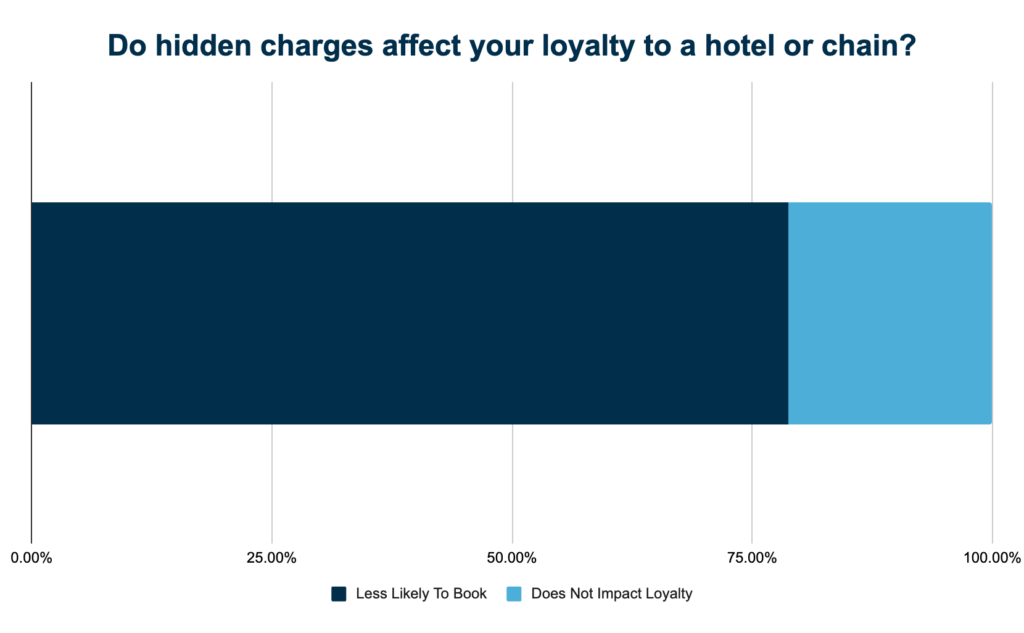
The data is clear, travelers will avoid hotels with hidden fees when possible. We have already shown that nearly 20% of travelers will avoid booking a hotel that has charged them a hidden fee in the past. When this is expanded to loyalty in general, the data uncovered that 78.8% of travelers are less loyal to brands and individual properties that charge hidden fees.
The solution: transparency in hotel pricing
There is no doubt that fees can play a valuable role in the overall pricing matrix for a property, particularly when trying to remain competitive against other properties, vacation rentals, or OTAs. Fees give a hotelier the flexibility to offer options to only those who need them, better allocate revenues, and recoup operational costs. However, when these fees are hidden they can lead to lower conversion rates, lower guest satisfaction, fewer repeat guests, and even potential legal issues.

Our study concluded with a final question related to how transparent pricing could improve booking probability. The data highlighted that 92% of respondents would be more accepting of the fees when presented upfront. Combining the data suggesting the preference for transparent pricing with the negative impact of deceptive pricing suggests that independent hoteliers seriously consider changing their pricing strategies.
Some considerations to conclude the research include:
- Each market is unique and what works for one won’t work in others
- The OTAs and vacation rental sites are moving to more transparent pricing, which will help hoteliers better compete on a transparent pricing playing field.
- Research and testing are critical to avoid costly pricing mistakes
- Monitoring your competition through the booking process is important to maintain competitive pricing
- Anytime your pricing changes, watch your metasearch rates and OTA rate parity carefully
At the end of the day, the way a hotelier treats their guests during booking will shape a traveler’s entire journey. We encourage hoteliers to look at transparent pricing and implement as much as possible. Like with all TravelBoom recommendations it always comes down to ABT, Always Be Testing.
